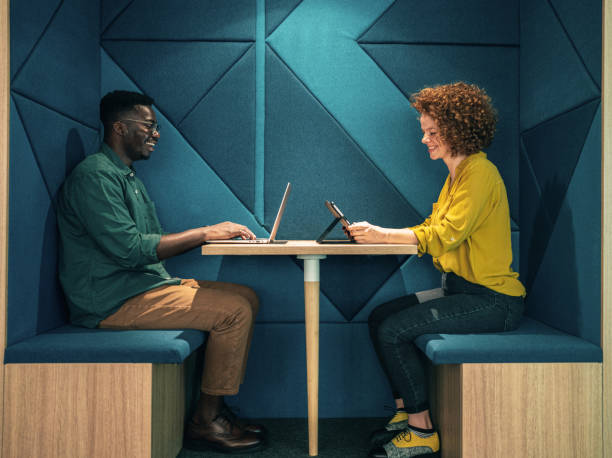List of things to take along to collage/University.
It is already a hard enough experience to get ready for university if you have to give thought to what you are going to bring with you. Because there is a restricted quantity of room, it is quite unlikely that you will be able to bring all of your belongings with you. In any case, starting again is a big part of the excitement of going away to college.
Having said that, there are a few things that every student absolutely has to have on their list. As a new student, you will need things like crucial documents, technological devices, clothes, food utensils, bedroom goods, and study needs to be easily accessible wherever you are, whether you are in the lecture theater, your dorm room, the administrative office, or elsewhere.
Help has thankfully come to hand. We have compiled a comprehensive list of items that should be brought to university, including those that are required, some that are desirable, and a few that should be avoided. Continue reading, then start getting your things together by getting your luggage ready.
The life of a student is an unending dance of compromise between seriousness and frivolity.
When you are attempting to pack for the next chapter in your life, the list of prospective things may first appear like it will be too much for you to handle. In order to make things easier to understand, each component of our “What to take to uni” checklist is broken down into two categories:
the necessities, also known as “must-haves,” and the non-essentials, which are referred to as “nice-to-haves.” This way, you’ll know which items should go into your luggage first and which ones you may stack atop the others if there is extra space after you’ve packed everything else.
Studying? Bank for free!
You may bank from any location, at any time. It will just take you a few minutes to open a student checking account online for free.
Learn more about student checking and savings accounts.
Documentation; establishing one’s identity is crucial.
The paperwork is at the very top of the priority list. While it is possible that you will be able to purchase a good many of the common products listed in this guide after you have arrived, the local shop is not going to have a section for selling new passports or class schedules.
A helpful hint is to have your bank cards and driver’s license with you at all times, and to store the rest of your personal documents in a folder that is hidden away in your room.
Essentials (include eight items):
A passport, a driver’s license, and/or a personal identification card are required (if you have one)
Correspondence from the university including an admission letter, prospectus, textbook and reading list, information on accommodations, and a campus map
All scholarship, bursary, and grant-related correspondence that you have received
Information about your bank accounts and any recent communication received from your bank
Student loan paperwork
A copy of any prescriptions for medical treatment that you may have.
Work/study visas (if applicable)
Discretionary items (four in total):
Cards offering a discount to students (travel, sports, shopping)
Additional photographs for use in biometric passports
A listing of mobile phone numbers to have on hand in the event that you misplace your device.
Insurance documents (consider taking out insurance before you arrive)
Electronics – try to keep them on the small side.
It’s possible that you believe the one thing you need most of all is your laptop. Studies have shown that bringing electronic devices to school, such as a laptop or tablet, might actually inhibit one’s ability to study. When you take notes on a laptop, your brain doesn’t have enough time to comprehend the material as you enter it, which might cause you to lag behind in your studies.
Instead, we suggest only bringing a good old pen and pad of paper to class with you, and keeping everything else in your room until after the lesson is over. Oh, and just to remind you, make sure your phone is on the quiet setting.
Essential things include (in order):
The laptop with its charging cord
A mobile device with its charging cable
Headphones (for peaceful, concentrated study hours) (for quiet, focused study periods)
You should bring an extension cord with you since you won’t know how many plug outlets your room has until you get there.
USB stick (in the event that you are unable to access the data you have stored in the cloud once you are on campus).
Discretionary items (five in total):
The wireless capabilities of your screen, mouse, and keyboard will do wonders for the health of your posture.
Charger for your mobile device that you can take with you everywhere you go
Cable for Ethernet
batteries in the AA and AAA sizes
Items to study; don’t be the person who asks the teacher for a pen to borrow in class.
Having a plan for what to bring to university lectures allows you to reap two benefits: first, it ensures that you are ready for any in-class scenario during your first few weeks of college, and second, it enables you to give your whole attention to what your lecturers are saying.
It makes no difference whether you are physically present at the lecture or listening to it online; just having the materials you need on hand may do wonders for your ability to concentrate.
Note that these are the fundamentals. The list of things you absolutely need to have will be longer if you want to major in something like mathematics or graphic design, for example.
Essentials (there are four of them):
Notebooks (A4, A5) (A4, A5)
Personal organizer (it’s best not to try to remember all of your commitments and due dates in your brain!)
Highlighters, pens, and pencils are all included (different colors are a good idea)
You may save your work as lever-arch files and keep it structured in this way.
Discretionary items (five in total):
Notes on Post-it
Staple gun and a hole punching device
Eraser
Ruler
Wallets made of plastic (added protection for your notes)
Items from the home, including the kitchen, bathroom, and bedroom
The key to success in this endeavor is moderation. It is important to keep in mind that purchasing a whole set of kitchenware puts you in the position of being exclusively responsible for its upkeep.
Utensils and storage containers, in particular, are prone to disappearing while students are away at college. When you get there, it’s a better idea to pool your resources with a few other students and split the bill.
This results in less expenses, and it also makes it more likely that individuals will take care of items if they have paid for them themselves. Also, if you do decide to take all of your own cooking equipment, be sure to mark them in some way so that you can demonstrate that they are yours.
Important to Have (14 Items):
Included in the definition of “bed linen” are “bedsheets,” “pillows and cases,” “duvets with covers,” and “mattress protectors.”
Backpack, weekend bag
Alternately, a clothes horse and a washing line
Coat hangers
Towels, a dressing robe, and a pair of sandals are included (if using a communal shower)
Brush, paste, gel for the shower, shampoo, and soap are included.
Accessories such as earplugs, nail clippers, razors, and hairbrushes, combs, and straighteners.
Hair dryer
A first-aid kit with the following items: bandages, painkillers, antiseptic cream, insect bite spray, thermometer, and antihistamine cream Band-Aids, painkillers, bandages, safety pins, tweezers, alcohol-free cleaning wipes, antiseptic cream, insect bite spray, thermometer, and tweezers
Toilet roll (especially if using a communal bathroom)
Medications and items for personal hygiene and sanitation
Makeup remover, contact lenses, and solutions are included.
The bottle of water
Nice-to-haves (14 things) (14 items)
Speakers
One or two green things (studies show the magic number for plants is actually 10, but your room may be too small for this)
A portable fan for the warm season
Flashlight
Padlock
Lighter
Pins or adhesive tack to draw pictures with
Desk lamp
Plastic wrap or tin foil, as well as Ziploc bags
Tupperware
The knife, the fork, and the spoon
Scissors
Thermos
Garments – for class, for late nights out, and for all in between
Because everyone has their own tastes when it comes to clothing, this section will provide some suggestions that are more generic in nature. When deciding what to bring to university, the most important thing is to remember to prepare for all four seasons and to wear clothes that are comfortable no matter the occasion.
Essentials consisting of seven items: underwear and socks
Clothing for everyday use (T-shirts, sweatshirts, jogging pants, jeans, etc.)
Coat, gloves, and caps for the winter are required.
Dressing appropriately for more official events.
Sportswear/swimwear
Sneakers, work boots, and casual shoes
Pyjamas
Discretionary items (four in total):
Slippers
Articles of fancy dress
Raincoat \Watch
Avoid these things at all costs—what here’s you shouldn’t bring to college.
When it comes to choosing what to bring to university, there is always another side to every coin, and this guide wouldn’t be complete without a mention of a few things that absolutely must be overlooked. There are always going to be exceptions to the norm, so it is important to exercise your best judgment (who knows, maybe you will really need to bring a microwave all the way to college).
Must-avoids (7 items):
Because there are so many libraries, computer centers, and copy shops located all around campus, you won’t need to spend hours attempting to synchronize your printer with the wireless network in your dorm room if you bring a printer with you. This is one of the few advantages of attending to college.
Your automobile: to begin, each time you return from your lectures, you will either need to pay for a parking place or locate one free of charge on the street. Second, you’ll be responsible for paying the cost of the petrol. Third, everyone on campus will be able to use your services as a taxi company. While in uni, public transit is your buddy!
Multiple jackets and/or pairs of shoes: considering the fact that coats are heavy and take up a lot of room in baggage, you should carefully consider whether or not you really need a different coat for each day of the week.
The same holds true for footwear. That pair of Christian Louboutin heels or those Yeezy 700 sneakers that you have stashed away in a box at the far back of the closet? You should abandon them.
The teapot, the toaster, and the microwave that you’re attempting to cram into a box are examples of small home appliances. Forget it. If you are staying in a dorm, you will have access to these appliances in the kitchen or another community space.
Do you want to rent a room in a house? There is a very good chance that the landlord will provide them.
Work from your past: don’t bother looking in the rearview mirror.
Anything bulky
Books: Check out your local library! In addition to that, there will be several book fairs where you can stock up on new titles.
How To Get That First Job After Graduating From College
How Is A Building Project Financed?
What Exactly Does The Phrase “Competitive Environment” Mean?



